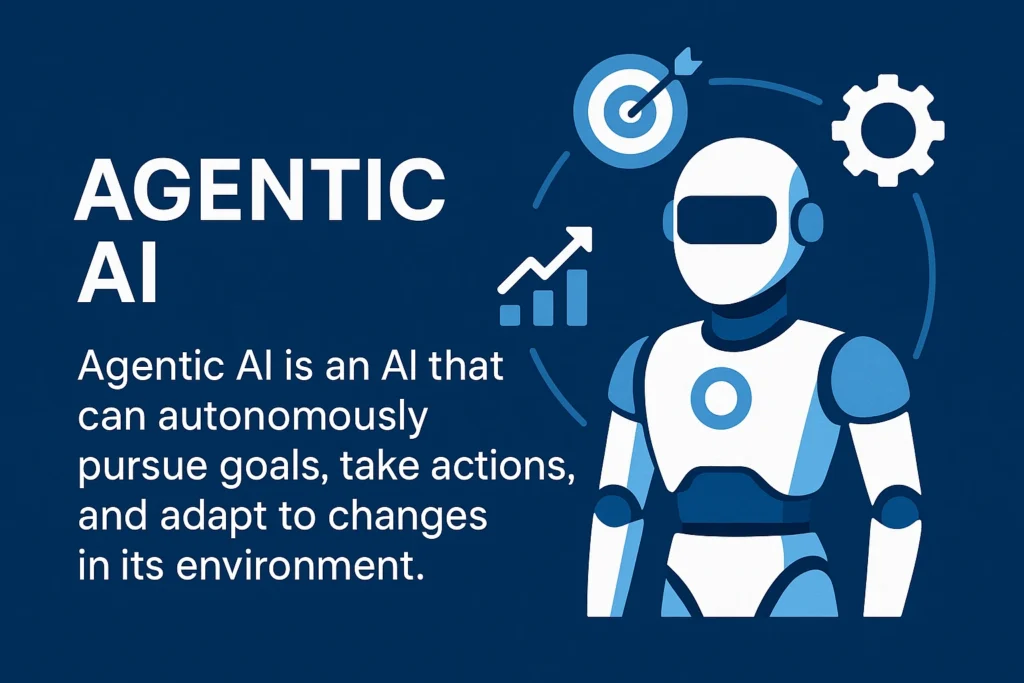Table of Contents
TogglePerplexity: The Answer Engine Revolutionizing AI Search

Audio Track of Perplexity’s Vision
The Future of AI, Competition, and Perplexity's Vision
Overview:
Interview with Aravind Srinivas, founder of Perplexity, a rapidly growing AI-powered search engine. Key themes include Perplexity's unique approach to search, its competitive landscape against tech giants like Google and OpenAI, the strategic insights from investor Jeff Bezos, the future impact of AI on industries and human cognition, and Perplexity's strategic focus on growth and product innovation. The interview highlights the emerging "answer engine" market as a significant disruptive force in information retrieval.
1. Perplexity's Core Offering and Differentiation
Perplexity aims to redefine search by providing direct, synthesized answers to complex questions, a departure from Google's traditional link-based results.
- Answer Engine vs. Link Aggregator: Srinivas emphasizes that Perplexity caters to
"actual answers to questions,"
in contrast to Google's typical"single word searches"
or"quick fast navigation."
While Google excels at simple facts or web navigation (e.g., "Amazon," "Instagram," "weather"), Perplexity is designed for deeper, multi-hop reasoning queries (e.g., "how many times has Tendulkar scored a 100 and India has lost the match?"). - Long-Form Queries: The median number of words on a Perplexity search is
"like 10 words,"
significantly higher than Google's"2.3 words."
This indicates a different user behavior and need. - Mechanism of Answer Generation: Perplexity pulls relevant results from an index, utilizes ranking signals from various search engines, and then employs a proprietary algorithm to allow an AI model to
"read all those retrieved links, pull relevant paragraphs, use that to write a synthesize an answer and pull the final citations."
It also maintains context for follow-up questions. - Focus on Quality and Filtering: A significant part of delivering high-quality answers involves
"filtering out like really low-quality domains."
Personalization, primarily through"location,"
also plays a role, though broad personalization for every user is not seen as a major differentiator. - User Experience as Priority: Bezos's advice to
"just retain the users don't be a leaky bucket make sure retention is high"
reinforces Perplexity's commitment to customer experience.
2. Competitive Landscape: Google, OpenAI, and Others
Perplexity operates in a highly competitive space, with major players aggressively pursuing AI-driven search solutions.
- Direct Competition with Google: Srinivas acknowledges Google as
"the one with the most to lose"
if an AI-native answer engine succeeds, primarily due to Google's existing ad-based business model, which can be cannibalized by direct answers. He notes Google employees and their children use Perplexity because"it's a better product."
- The "Innovator's Dilemma" for Google: Google faces a challenge in shipping a product like Perplexity to a billion users due to the
"invader dilemon situation"
(innovator's dilemma), where introducing an AI-powered answer engine could disrupt their highly profitable traditional search and advertising business. - Emerging Market, Multiple Players: Srinivas believes the next generation of search, focused on conversational AI, will have
"multiple players."
While Google and OpenAI will be prominent, Perplexity, Meta, and xAI also aim for significant market share. He hopes it won't be a"90% winner"
scenario, but rather a more distributed market (e.g.,"40 30 20 10 among four tools"
). - Perplexity's Market Position: On the web, Perplexity is
"third and Gemini is second."
On mobile, while Gemini has more installs, Perplexity claims better"actual usage"
and retention, potentially making them"number two."
OpenAI's ChatGPT currently dominates both web and mobile usage. - Funding Disparity: Perplexity has raised around
"$800 or 900 million,"
significantly less than OpenAI (over $20 billion) and Google (over $100 billion in cash). However, Srinivas emphasizes that"just because you have the money doesn't mean you win,"
highlighting Perplexity's advantages in"lower bureaucracy, faster movement, lower distractions, clear right focus on just the product."
- Elon Musk and xAI: Srinivas views Elon Musk's entry into the AI search space with xAI (which raised $6 billion) as making
"the whole market even bigger"
and validating the opportunity. While acknowledging the capital and GPU constraints, he notes xAI's spending focus on data centers differs from Perplexity's product-centric approach. He believes the model competition among major players is"very evenly contested."
3. Jeff Bezos's Influence and Investment
Jeff Bezos's investment and subsequent engagement provided significant validation and strategic guidance for Perplexity.
- Initial Investment Process: Bezos's initial investment came after reviewing a memo and a voice-to-voice demo, without an in-person meeting. He
"approved the investment"
based on the documentation and demo. - Key Advice: Bezos stressed the importance of
"customer experience," "retain the users, don't be a leaky bucket,"
and maintaining"retention"
as the company grows. He also offered the profound insight:"your success doesn't rely on Google's failure,"
suggesting a focus on Perplexity's unique value proposition rather than direct competition. - Reasons for Investment (Srinivas's Guess): Srinivas speculates Bezos invested because Perplexity's product
"worked as expected"
when other AI products (ChatGPT, Bard, Copilot) were less reliable at browsing. He also cites Perplexity's"lot of visibility," "incredible"
existing investors, rapid team execution, and"very efficient"
use of capital with a"customer focused AI company"
thesis. - Bezos's Business Philosophy: Srinivas deeply admires Bezos's
"incredible clarity of thought,"
his"timeless"
wisdom like"your margin is my opportunity,"
and his ability to"write down how you think and how you make decisions"
to scale a company. Bezos's insights on overestimating risk and underestimating opportunity, and the human tendency to be social animals rather than"truth seeking,"
resonated with Srinivas.
4. AI's Societal Impact and Concerns
The interview touches on broader implications of AI, including economic shifts and potential cognitive changes.
- Beneficiaries of AI Adoption:
- Software Development: Independent consultants and developers can achieve
"faster throughput."
- Healthcare: AI can assist in
"AI based healthcare advisor," "agents who are connecting you to doctors,"
and"get quick checks"
and report auditing. - Financial Consulting: AI can analyze portfolios, research news, read reports, and provide
"investment advice,"
democratizing access to high-level financial guidance.
- Software Development: Independent consultants and developers can achieve
- Industries Facing Disruption/Tension:
- Software Consulting: AI co-pilots reduce reliance on large
"dev shops."
- Customer Support/Call Centers: Voice agents are expected to
"do a lot of these things pretty well."
Srinivas suggests companies should"disrupt it ourselves"
and re-invest margins into new jobs for displaced workers.
- Software Consulting: AI co-pilots reduce reliance on large
- Concerns about Digital Amnesia: The interviewer raises the concept of
"digital amnesia,"
where over-reliance on technology (like calculators or Google Maps) could diminish human cognitive abilities, such as memory. Srinivas acknowledges the concern but expresses hope that freed-up mental capacity will be used for"more creative things"
and solving"more complex problems."
- AI as a "God-like Thing" Conspiracy: Srinivas dismisses the idea of AGI being built for
"controlling the whole universe,"
but acknowledges the"true power in being the CEO or the chief decision maker of a company that's building the most intelligent model."
- Real Dangers of Superintelligence: The true danger, according to Srinivas, lies in the economic and geopolitical advantages a single entity (e.g., a country or corporation) could gain from possessing
"super intelligence"
capable of solving complex problems (e.g., new drugs) with unprecedented efficiency. This could lead to"defense problems and warfare"
if other nations try to"steal it."
5. Perplexity's Future Trajectory and Challenges
Perplexity's strategic roadmap focuses on aggressive growth and product innovation.
- Growth over Immediate Revenue: Perplexity's current focus is
"growth,"
not immediate revenue. They aim to ensure good margins on paying users and reduce costs for free users as models become cheaper. - Market Share Goals: While not aiming for Google's 90% dominance, Srinivas would consider a
"pretty big win"
if Perplexity achieves significant market share within the next generation of users (e.g., contributing to a"40 30 20 10"
split among top players). A true benchmark of success would be if"even people within Google like Google employees and their kids they all use perplexity instead of Google because it's a better product."
- Scaling Ambitions: Perplexity, currently at
"20 million daily queries,"
aims for"two orders of magnitude more, like two billion."
- Political Neutrality and Government Relations: Srinivas states Perplexity aims to be
"politically neutral"
and avoid the"ranking bias"
issues Google has faced. He acknowledges that dealing with government rules and pressures will be a reality, stating,"we're open to like you know working with each government... we have to abide by their rules."
He points to Google's past struggles with political stances (e.g., China, Pentagon contracts) as lessons learned. - India's AI Landscape: India is
"very well positioned in terms of adoption,"
with"92% of knowledge workers"
using AI. Challenges include encouraging users to"earn more"
with AI tools (increasing per capita GDP) and fostering the creation of new AI-powered"apps and businesses"
that serve 100 million people, generating new market caps and jobs. Healthcare is identified as a particularly promising"opportunity space."
6. Key Takeaways and Actions
- Perplexity is strategically positioned as an AI-native
"answer engine,"
differentiating itself from traditional search and targeting a growing market for complex queries. - The competition in the AI search space is intense but not necessarily zero-sum, with Perplexity aiming for a significant share rather than total dominance.
- Jeff Bezos's early investment and continued strategic advice validate Perplexity's vision and emphasize the paramount importance of user experience and retention.
- AI is poised to disrupt multiple industries, creating new opportunities (e.g., AI-based consultants) while threatening others (e.g., call centers).
- The societal implications of AI, particularly regarding cognitive abilities, are acknowledged, with a hope that AI will empower creativity rather than diminish intellect.
- Perplexity's focus on growth and product innovation, coupled with a pragmatic approach to monetization and political engagement, defines its path forward.
Perplexity AI Strategy: FAQ
1. What are some of the key differences between Perplexity and Google's search approach?
Perplexity distinguishes itself from Google by focusing on providing direct, synthesized answers to complex questions, rather than a list of links. While Google's median search query is typically 2-3 words, Perplexity's median is around 10 words, indicating users are asking more in-depth questions. Google excels at quick, factual lookups and web navigation, often serving as a gateway to websites. Perplexity, on the other hand, is designed for conversational queries that require multiple "hops of reasoning" to generate a comprehensive answer with citations. This allows users to ask questions like "How many times has Sachin Tendulkar scored a hundred and India has lost the match?" which would be difficult to answer quickly on Google without opening multiple links.
2. How does Perplexity generate its answers, and what factors influence the results?
When a user submits a query, Perplexity retrieves relevant results from its index, leverages ranking signals from various search engines, and combines them using a proprietary algorithm. A large language model then reads these retrieved links, extracts relevant paragraphs, and synthesizes an answer. Crucially, Perplexity provides citations for its answers. To ensure quality, Perplexity filters out low-quality domains and dynamically re-ranks links based on region, the user's past queries, and the current query. While some personalization exists (primarily driven by location), the goal is for users asking the same question to receive largely consistent, correct answers, with variations primarily due to ongoing A/B tests to improve the product.
3. What is Perplexity's strategic approach to competing in the AI search market, especially against Google?
Perplexity does not directly aim to "beat Google" by trying to capture all single-word navigation searches. Instead, its strategy is to focus on growing the segment of searches that are better suited for its conversational, answer-oriented approach. This involves identifying and expanding use cases where users are seeking deep, synthesized answers rather than just links. The company believes that the market for these complex, conversational queries will grow exponentially. Perplexity aims to innovate on features, explore new business models beyond subscriptions, and enhance the core user experience to attract and retain users in this emerging market, rather than directly disrupting Google's established business model and ad revenue. They hope for a future where multiple dominant players exist in the search space, rather than a single 90% market share winner.
4. What are the advantages Perplexity has in the current AI landscape compared to larger competitors like Google and OpenAI?
Despite having significantly less funding compared to Google (with its $100+ billion cash reserves) and OpenAI (which has raised $20-25 billion), Perplexity believes it has several advantages. These include less bureaucracy, faster movement, fewer distractions, and a clearer focus on the product. While competitors like XAI are investing heavily in building their own data centers and training proprietary models, Perplexity's strategy of leveraging existing models and focusing on the user experience and orchestration of information allows them to be more efficient with their capital. This enables them to ship products faster and stay ahead in core user experience.
5. What are the "craziest conspiracy theories" and "real worries" about AI discussed in the source?
The "craziest conspiracy theory" about AI mentioned is the idea of AGI (Artificial General Intelligence) becoming a "god-like thing" that can control the universe, with some attributing this ambition to figures like Sam Altman. The speaker dismisses this as extreme power craze. However, "real worries" about super-intelligent AI are focused on its potential economic and geopolitical impacts. This includes a country gaining a significant market advantage by using an extremely intelligent AI to solve complex problems (like drug discovery) that are otherwise intractable, leading to massive economic impact and potential conflict as other nations seek to steal or replicate that advantage. The concern is less about AI manipulating people directly and more about the competitive implications of owning such advanced capabilities.
6. According to Jeff Bezos, what are the key principles for a startup's success, particularly relevant to Perplexity?
Jeff Bezos emphasized that Perplexity's success does not depend on Google's failure, showing optimism for their chances. His key advice revolved around maintaining high customer experience and retention, stating that "the only thing that matters is customer experience." He advised against becoming a "leaky bucket" and to prioritize increasing retention as the user base grows, rather than solely focusing on acquiring as many new users as possible. He also highlighted the importance of moving fast and continuously innovating.
7. What qualities make Jeff Bezos a "star founder" and how has he influenced the speaker?
The speaker deeply respects Jeff Bezos for his "incredible clarity of thought" and timeless wisdom, such as the "your margin is my opportunity" framework, which underlies many disruption stories. Bezos is praised for his repeatable frameworks and for being able to articulate his decision-making processes in writing (e.g., in shareholder letters), which allows his thought process to scale throughout the company even in his physical absence. His unique ability to write down his decision-making frameworks for others to follow demonstrates a "higher order clarity." The speaker also highlights Bezos's views on underestimating opportunity and overestimating risk, and the idea that humans are naturally social animals seeking validation rather than truth, which requires rewiring. The "regret minimization framework" is also cited as a significant influence, particularly in motivating the speaker to start Perplexity urgently.
8. What are some sectors poised to benefit most from AI adoption, and which ones will face the most disruption?
Sectors poised to benefit significantly from the rapid adoption of AI include:
- Software Development: AI co-pilots and tools can greatly enhance productivity for developers and independent consultants, allowing them to do more work per unit time.
- Healthcare: AI can assist with diagnostics, analyzing reports, connecting patients to doctors, and providing quick health checks.
- Financial Consulting: AI can help analyze portfolios, research market news, read extensive reports from banks, and provide personalized investment advice, making high-level financial guidance accessible to more people.
Sectors most likely to face disruption or "maximum tension" due to AI adoption are:
- Software Consulting (traditional large dev shops): With AI co-pilots, the need for large human development teams may decrease as work can be done more efficiently.
- Customer Support (call centers): Voice agents powered by AI are expected to take over many functions, potentially leading to job displacement for human call center employees, though businesses might see higher margins.
Posts Gallery

Agentic AI for Enterprise Automation
Discover how Agentic AI revolutionizes enterprise automation, boosting efficiency and strategic decision-making.
Read More →
How Agentic AI Works: Intent to Execution
Unpack the intricate process of Agentic AI, from understanding user intent to executing complex tasks autonomously.
Read More →
Purpose & Use Cases of Agentic AI
Explore the diverse applications and strategic importance of Agentic AI across various industries and daily operations.
Read More →
What is Agentic AI?
A foundational article explaining the core concepts of Agentic AI, defining its components and its role in modern automation.
Read More →
Why Agentic AI?
Understand the compelling reasons and significant benefits that make Agentic AI a transformative technology for efficiency and innovation.
Read More →
AI Tools Spotlight
A comprehensive overview of cutting-edge AI tools that are shaping the future of automation and intelligent systems.
Read More →

